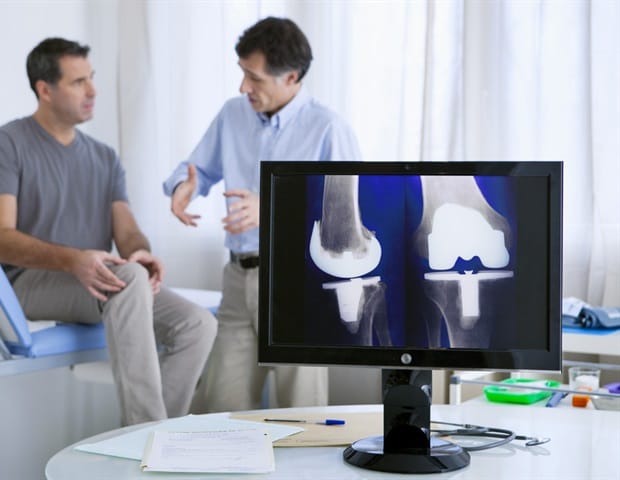
Researchers from Brigham and Women’s Hospital in collaboration with the Yale and Boston University Schools of Medicine have utilized a model to quantify the benefit of undergoing Total Knee Replacement (TKR) procedures to treat knee osteoarthritis in patients with extreme obesity, ScienceDaily reports. Of the 14 million adults in the US who suffer from knee osteoarthritis, many have extreme obesity defined by a BMI greater than 40 kg/m2. Because of this, surgeons are often hesitant to perform this procedure due to increased risks of infection, poor wound healing and implant failure.
However, leading author Elena Losina, PhD believes that people with extreme obesity can experience meaningful improvements in quality-adjusted life expectancy and thus a high BMI “should not serve as a barrier for people seeking this procedure.” Researchers used a widely accepted computer model called the Osteoarthritis Policy (OAPol) model, which combines clinical and economic data from national datasets to forecast the trade-off between pursuing and forgoing a TKR. This model weighs associated benefits such as improvements in pain leading to better quality of life, drawbacks such as surgery complications, and costs to calculate a dollar value for quality-adjusted life year (QALY) gained.
According to the OAPol model, TKRs have favorable cost-effectiveness ratios of $35,200 and $54,100 per QALY for both patients younger and older than 65 years, respectively. Considering that most patients with extreme obesity and knee osteoarthritis are under 65 years of age, this data may help to alleviate concerns regarding the value of TKR in these patients. Losina states that instead of questioning whether or not this procedure should be performed on people with extreme obesity, this study “raises the question of how to do the operation in a way that addresses all of the challenges that may arise” and thus “optimize the work of orthopedic surgeons performing TKR in these patients.”


Comentarios recientes